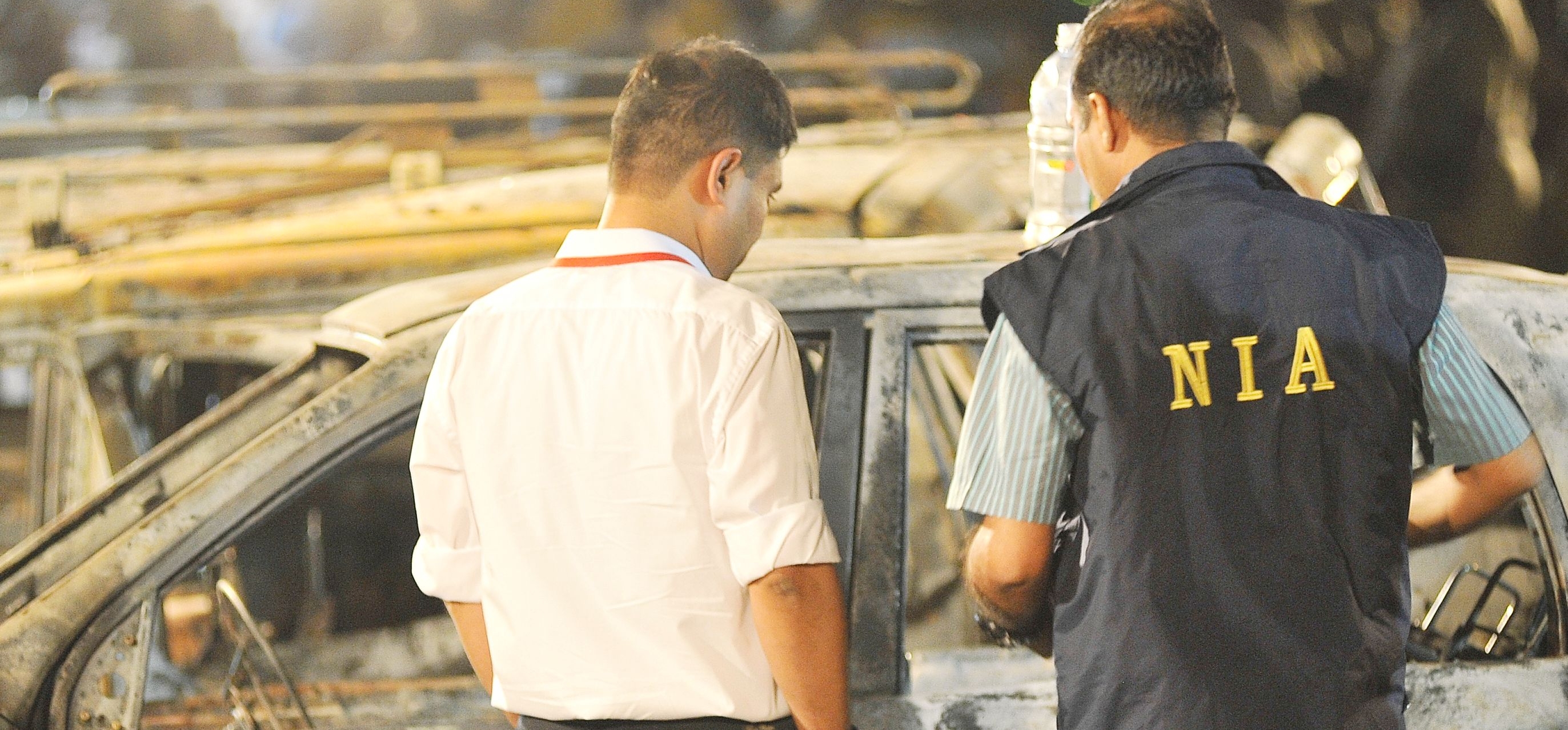


The National Investigation Agency (NIA) successfully extradited Salman Rehman Khan, a member of the banned Lashkar-e-Taiba (LeT), from Rwanda to India on November 28. Salman was arrested in Kigali with help from the Rwanda Investigation Bureau (RIB), Interpol, and National Central Bureaus (NCBs), and was taken into NIA custody upon his arrival in India. This is the seventeenth extradition by the NIA since 2020, showing India's commitment to bringing back terror fugitives to face justice.
Rwanda's Role in Extradition of Terror Suspects to India
Background:
In recent years, Rwanda has played a crucial role in assisting India's efforts to extradite terror fugitives wanted for trial in the country. The National Investigation Agency (NIA) of India has been collaborating with Rwanda's Investigation Bureau (RIB) to apprehend and extradite such individuals.
Recent Extradition:
On November 28, 2022, the NIA successfully extradited Salman Rehman Khan, a member of the banned terrorist group Lashkar-e-Taiba (LeT), from Rwanda to India. Khan was arrested in Kigali with the assistance of the RIB, Interpol, and National Central Bureaus (NCBs).
This extradition marks the seventeenth successful extradition by the NIA since 2020, demonstrating India's unwavering commitment to bringing terror fugitives to justice.
Rwanda's Cooperation:
Rwanda's cooperation with India in the extradition of terror suspects stems from its strong commitment to combating terrorism and promoting global security. The country has adopted a zero-tolerance policy towards terrorism and has been working closely with international partners to disrupt terrorist networks.
Top 5 FAQs and Answers:
1. What is the role of the NIA in these extraditions?
The NIA is India's premier agency responsible for investigating and prosecuting terrorism-related offenses. It has the authority to request extraditions of terror suspects from foreign countries.
2. Why are these extraditions important?
Extradition allows India to bring terror fugitives to justice and hold them accountable for their crimes. It also serves as a deterrent to others who may consider joining or supporting terrorist groups.
3. How does Rwanda assist in these extraditions?
The RIB cooperates with the NIA by conducting investigations, apprehending suspects, and facilitating their extradition to India.
4. What are the challenges involved in extradition processes?
Extradition processes can be complex and time-consuming due to legal and diplomatic considerations. However, Rwanda's cooperation has helped expedite these processes.
5. What are the implications for India-Rwanda relations?
The successful extradition of terror suspects strengthens the bond between India and Rwanda and demonstrates their shared commitment to combating terrorism. It also fosters closer cooperation between the two countries in law enforcement and security matters.

On day 1,312 of Russia's war on Ukraine, tensions continue to escalate as Ukrainian drones target a Russian oil pumping station, Russian forces seize three more villages in eastern Ukraine, and NATO increases its presence in the Baltic Sea region. In response to the ongoing conflict, the Ukrainian security service reports that the SBU caused a fire and halted operations in the Chuvashia region, while Russia's military announced its continued advance in Donetsk and Dnipro. Meanwhile, NATO's decision to deploy additional military assets comes after several days of unidentified drone sightings in Denmark and at military bases.

The upcoming India-Australia ODI series has drawn attention for multiple reasons, including the successful return of Rohit Sharma and Virat Kohli as white-ball players. Despite being relieved of captaincy, the duo is expected to continue playing in the format until the 2027 World Cup, according to Australia's Travis Head and India's Axar Patel. As both teams gear up for a high-stakes clash, the focus remains on the future of these two icons and their potential to lead India to another ODI World Cup victory.

Pakistani security forces have thwarted a suicide attack targeting their camp in Mir Ali, North Waziristan, after a vehicle loaded with explosives was driven into the perimeter wall. In a separate operation, 34 militants described as "India-backed terrorists" were killed in multiple engagements across Khyber Pakhtunkhwa. These operations form part of Pakistan's continued efforts to eliminate foreign-sponsored terrorism from the country under the vision "Azm-e-Istehkam."

Amid an intensified wave of militant activity in Pakistan's northwestern tribal belt bordering Afghanistan, security forces successfully foiled a major suicide attack on a military camp in North Waziristan's Mir Ali area. Four terrorists, including a suicide bomber, were killed in the exchange, with no casualties among security personnel. The incident highlights the ongoing threat of militant activity in the region, with recent counterterrorism operations resulting in the death of 88 militants, including several from the Tehreek-e-Taliban Pakistan (TTP).

Former US President Donald Trump shared news on his social media platform about a “very productive” phone conversation with Russian President Vladimir Putin, where they discussed progress towards ending the Russia-Ukraine war. Trump mentioned the possibility of a summit in Budapest involving top advisors from both countries, while also revealing that he will be meeting with Ukrainian President Volodymyr Zelenskyy to discuss the call and other matters. As India’s economy continues to grow, its luxury market is also thriving with high-end brands investing in the country to meet the increased demand.

Ukrainian President Zelensky is currently in Washington to meet with US President Trump. This meeting comes after Trump had a productive phone call with Russian President Putin, where they agreed to face-to-face talks in Hungary. Trump is considering arming Ukraine with advanced Tomahawk missiles, but stated that the US stockpile must also be preserved. Meanwhile, Trump has promised to update Zelensky on his discussions with Putin and believes that progress has been made.

The Ministry of External Affairs has denied that a phone conversation took place between Indian Prime Minister Narendra Modi and US President Donald Trump on Wednesday, contradicting Trump's claim that Modi personally assured him that India would stop purchasing Russian crude oil. Trump had announced this move as a big step, describing that the process had already begun. However, MEA spokesperson Randhir Jaiswal clarified that there was no discussion between the two leaders during a weekly briefing. This contradiction comes after the last confirmed phone call between the two on 9 October, when they discussed trade negotiations.

President Donald Trump announces plans to meet with Russian President Vladimir Putin in Hungary, following a productive phone call between the two leaders. The talks will include high-level advisers from both sides, led by US Secretary of State Marco Rubio. However, there is little indication of progress in ending the war in Ukraine, and Trump is likely to face pressure from Ukrainian President Volodymyr Zelensky during his visit to Washington, D.C. for the US to provide military support to Ukraine.

US and Russian Presidents Donald Trump and Vladimir Putin have had their first conversation since August, with plans to meet in person in Hungary. They discussed trade and teams from both countries will meet next week. This came a day before Ukraine's President Zelensky's visit to the White House and amid discussions about arming Ukraine with deep-striking Tomahawk missiles. Despite the talks, Ukraine's ambassador to the US says Moscow's recent actions show their real attitude towards peace and call for tougher responses such as sanctions and military reinforcement.

EU foreign policy chief Kaja Kallas has announced plans for a new anti-drone system in response to ongoing fears of Russian aggression. The proposed "defence roadmap" includes measures such as improving Eastern borders and creating air and space shields. With several European countries facing airspace incursions, the EU is taking steps to be fully prepared for possible conflict by 2030. The announcement comes ahead of talks between US President Donald Trump and Russian President Vladimir Putin, with Trump indicating that the US could provide Ukraine with long-range missiles if the war in Ukraine continues.